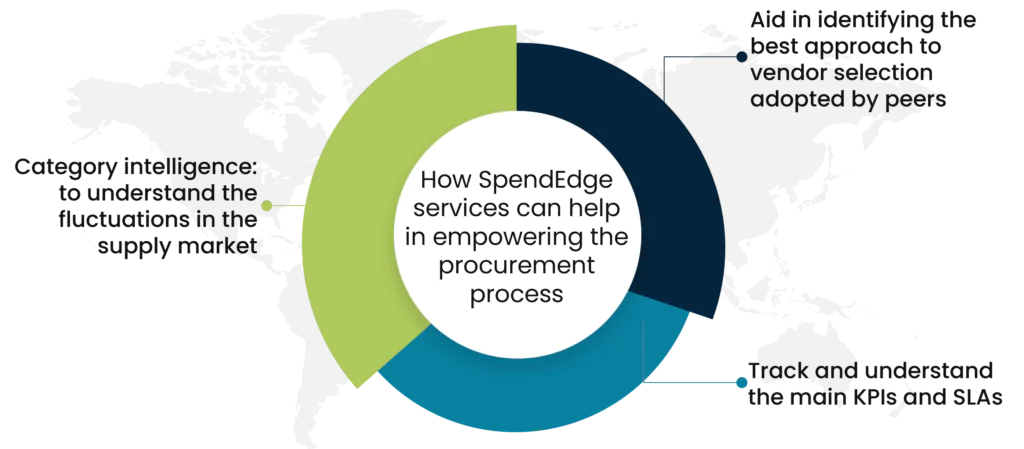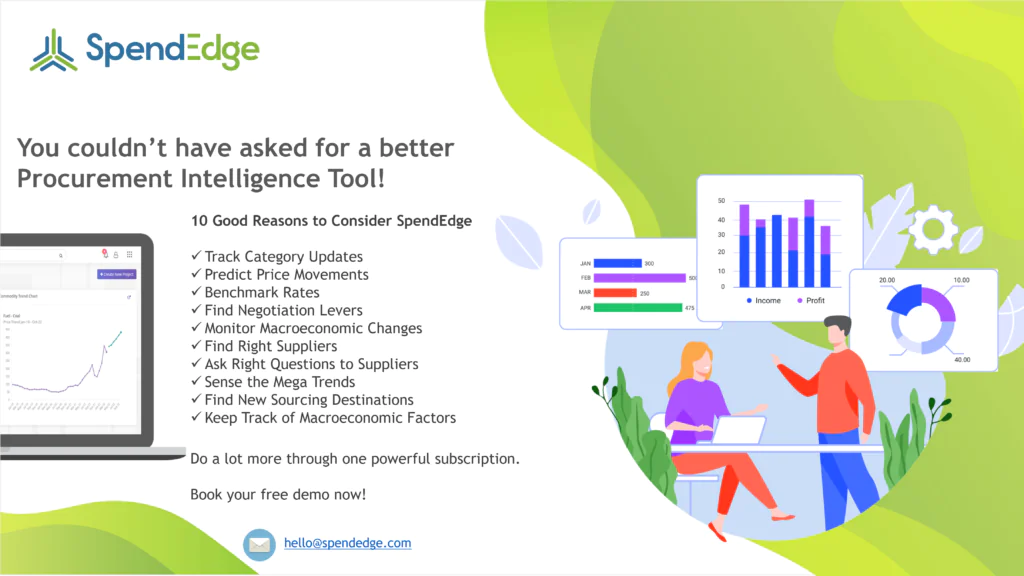By: George Mathew
Decentralized procurement involves individual departments or units within an organization making their own purchasing decisions independently. It grants more autonomy but can result in inefficiencies, reduced cost control, and inconsistent vendor relationships. In contrast, centralized procurement consolidates purchasing activities under a single department, fostering economies of scale, improved vendor management, and cost savings. Centralization enhances coordination, standardization, and compliance, promoting overall efficiency and strategic procurement management.
In a procurement environment where permission-based methods are used, business units have the power to make decisions and choose to participate or not participate in central initiatives. Typically, business units will have stronger loyalty towards their brand and culture than the parent or central unit. Additionally, there may be a historical indifference towards central initiatives. If the corporate culture is unlikely to change, then being a CPO in this situation can be one of the most challenging roles.
How a decentralized procurement function can build its importance in a permissive procurement environment
Regarding the central delivery perspective, the first thing that is needed is to start small and build more permissions. Here’s what a ‘decentralized CPO’ should take on, a potential menu of services, mapped against maturity and investment requirements.
In a decentralized procurement function, the service offerings have been assessed in accordance with two aspects including the effort or investment that needs to be put in by the procurement team and how aligned are the procurement team and budget holder’s goals. Based on the CPO typically has four options
Start here:
A central team with limited investment can serve as a knowledge manager and identify best practices across the organization. Policies should focus on outlining what needs to be done rather than dictating how it should be done. This team can provide principles for all business units to follow, such as a code of conduct for buyers and suppliers, or guidelines for post-tender negotiation ethics. The team can also provide guidance on training or tricky contracts and negotiations. Establishing a reputation for commercial competency is crucial for the future success of the organization.
Prove the case:
Implementing some services may require significant investments in headcount and systems. However, if done effectively, it can form a robust core team. Consolidating goods and services can be beneficial as many items can be bought and maintained efficiently. Spend control towers are crucial in understanding spend profiles and building higher-level supplier relationships. Accurate data and standard reporting across the portfolio are necessary to obtain these insights.
Test the water:
In situations where a neutral voice is needed to provide a calm judgment, a central function can offer a more impartial perspective and help resolve disputes. It’s not unusual for a central point to challenge or approve large or long-term purchase decisions under delegated authority frameworks, but procurement may not always be the approver. Therefore, having a “seat at the table” increases the procurement team’s authority and promotes good procurement practices before making significant investments. Currently, decisions to outsource or bring functions back in-house are made on an ad-hoc basis, but an annual or bi-annual systematic review process is becoming the norm.
Grow to here:
A shared service center can help independent procurement teams by providing support for running competitive events while still maintaining control over the outcomes. The center can also provide consulting services. This makes the center a valuable support advisor to the retained business unit procurement team. For large and complex purchases, the central unit can support a skilled team of commercial specialists on an in-and-out basis, focused on project delivery.
How SpendEdge services can help in empowering the procurement process

Category intelligence: to understand the fluctuations in the supply market
SpendEdge offers a comprehensive understanding of specific supply markets, including recent developments and important vendors providing the service or product. Our category analysis provides you with precise data on cost drivers, accurate cost estimations, and better supplier rates through negotiation, especially during times of market volatility. Relevant patterns extracted from large volumes of data can be obtained, and you can get a dashboard view of cost drivers and market-shaping trends. Furthermore, you can drill down to cost elements, raw material prices, and best practices.
Aid in identifying the best approach to vendor selection adopted by peers:
Our team is here to assist you with identifying the most effective approach to vendor selection, engagement models, contract negotiation, and cost management. By doing so, we can streamline your processes and eliminate unnecessary steps, which ultimately improves efficiency and collaboration. The best practices that we enforce in most industries align with regulatory requirements. By implementing these best practices, your business can demonstrate compliance, meet its legal obligations, and avert risks arising from non-compliance.
Track and Understand the main KPIs and SLAs:
Our expert intelligence can help you understand the key performance indicators (KPIs) that are crucial to track when evaluating the effectiveness of P2P software. We can also assist you in identifying the main service level agreements (SLAs) that should be included in your contracts with service providers. By collecting data for KPIs, you can analyze whether the outcomes meet your satisfaction levels. While SLAs record the delivery timelines agreed upon by suppliers and clients, KPIs ensure that these deadlines are met. These tools can help businesses manage their operations more effectively, avoid disruptions, and meet customer expectations for turnaround time.
The success story of how SpendEdge helped a global pharma company find CROs and CMOs
Our client is a global pharmaceutical company that has worked with several Contract Research Organizations (CROs) and Contract Manufacturing Organizations (CMOs) over the years. However, they realized that they had limited knowledge of the full capabilities of these CROs and CMOs. They were also unsure whether more capable CROs and CMOs existed, which could potentially benefit the client.
To address this, SpendEdge analysts conducted a vendor profiling study where an extensive list of CROs and CMOs was mapped along with their capabilities. We carried out an internal assessment of the research project to determine which activities could be done in-house and which ones would be outsourced. We identified if the client’s CMO had the capability and expertise necessary to manufacture their product.
The client was already aware of some of the shortlisted CROs and CMOs but was glad to have an external consultant confirm their capabilities. The additional names that the client was not aware of helped expand the list of vendors that they could include in their future RFx.

Contact us now to solve your procurement problems!
Author’s Details
George Mathew
Associate Vice President, Sourcing and Procurement Intelligence
George is a procurement specialist at Infiniti Research and provides advisory services to clients across the pharmaceutical, CPG & FMCG, energy, and automotive sectors. He specializes in the procurement areas of industry benchmarking, cost modeling, rate card benchmarking, negotiation advisory, and supplier intelligence.




